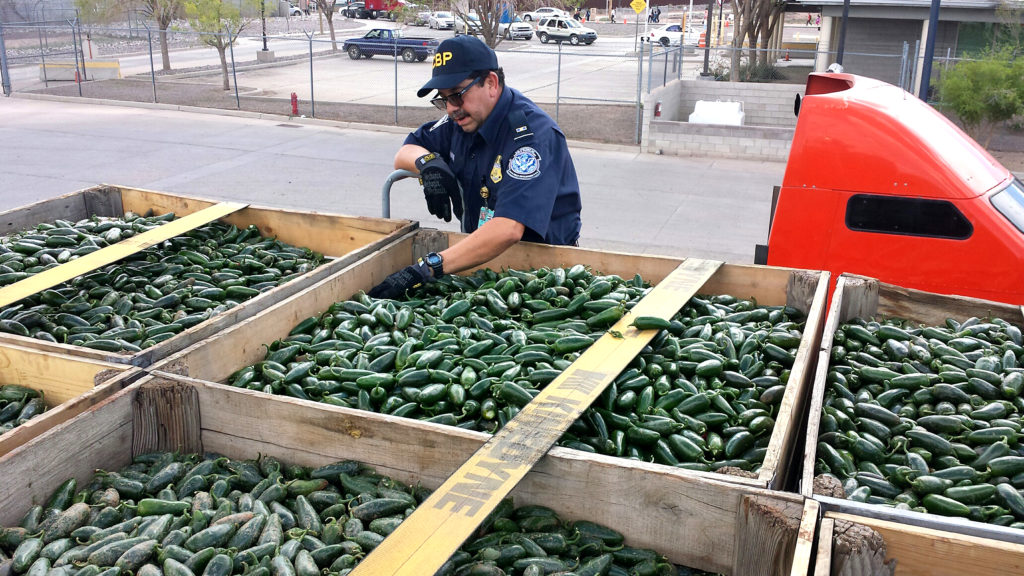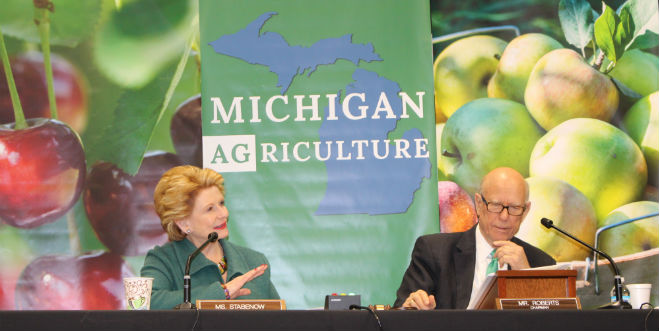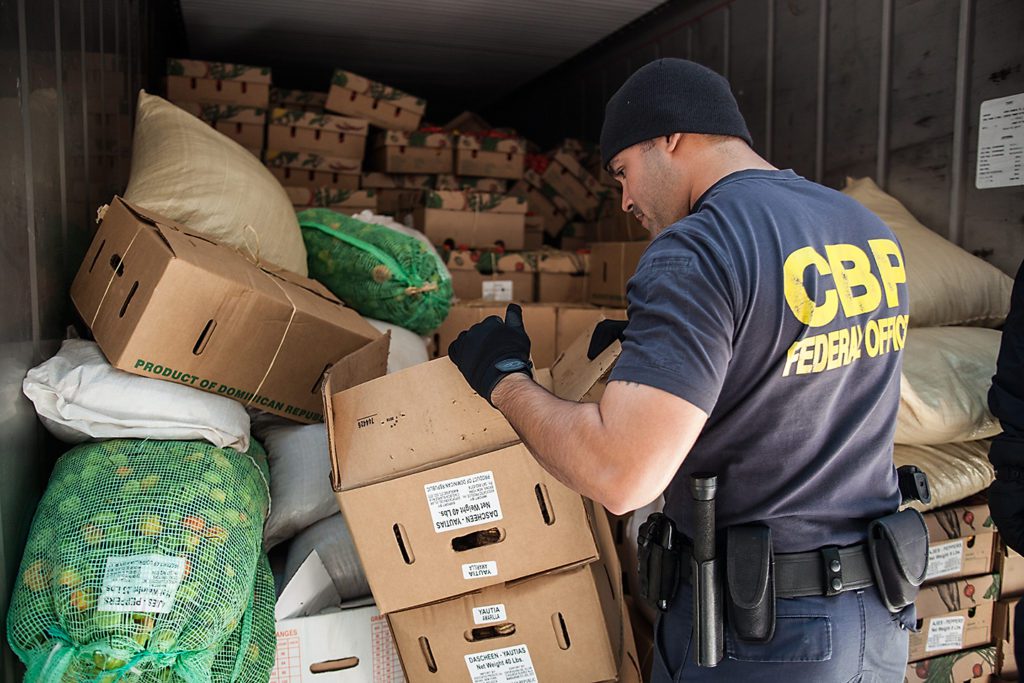Feb 19, 2020Borders’ ag inspections strengthened in passed bill
New legislation sent to the president would beef-up agriculture inspectors across the country.
The Protecting America’s Food & Agriculture Act is on President Donald Trump’s desk after being passed by the U.S. House Feb. 10. The bill would authorize U.S. Customs and Border Protection to hire 240 agricultural specialists a year until a workforce shortage is filled, and 200 agricultural technicians a year to carry out administrative and support functions.
“Agricultural inspectors are basically the first line of defense against these threats that have the potential to devastate Michigan’s agricultural sector, but we currently have a shortage of nearly 700 inspectors across the country,” said Sen. Gary Peters, D-Michigan, the ranking member of the Senate Homeland Security and Governmental Affairs Committee.
Customs and Border Protection agricultural inspectors everyday process millions of pounds of fruit, vegetables and meat, he said.


Photo: Chad Gerber/CBP
“Their work prevents serious threats from crossing our borders and the health and safety of millions of Americans and Michiganders,” Peters said.
The bill also authorizes the hiring of support staff, and canine teams. The bill authorizes the training and assignment of 20 new K-9 teams a year, used to detect illicit fruits, vegetables and animal products that may have otherwise been missed in initial inspections.
“Canine teams are important because there’s nothing more sophisticated than a dog’s nose in helping,” Peters said. The bill authorizes supplemental appropriations each year to pay for the activities of the agriculture specialists, technicians and K-9 teams.
Michigan growers grow a wide variety of crops – second only to California for crop diversity, Peters said – which makes it susceptible to a wide range of diseases and invasive pest species.
John Kran, national legislative counsel for the Michigan Farm Bureau, detailed some of those threats, including African swine fever which has already done much damage in much of Asia as well as parts of Europe. As an example of the devastation caused by a single transmitted pathogen, Kran said it’s estimated China has lost more than half of its pig population – that’s one in four hogs globally, or more than the U.S. production.
“We live in a global marketplace,” he said. “With that comes a lot of great opportunity, but with that also comes challenges we face by opening our doors up.”
Kran mentioned a variety of imported pests that trouble U.S. specialty crop growers such as spotted wing drosophila, brown marmorated stink bug, that trouble Michigan cherry, blueberry and apple growers.
“As these diseases and these pests emerge, we don’t necessarily have the chemistries we need to combat them,” he said. “Maybe they’re not being produced, or they’re not produced in the quantities needed, and in some cases there are label restrictions that prevent them from being used for that need.”
An additional concern for vegetable growers is Tomato brown rugose fruit virus (ToBRFV). In November, Animal and Plant Health Inspection Service (APHIS) has issued a Federal Order imposing restrictions on imports of tomato and pepper seed lots and transplants from all countries where the virus exists – as well as restrictions on tomato and pepper fruit imported from Mexico, Israel, and the Netherlands.
The disease hasn’t yet had a widespread breakout in the U.S., but could be very devastating here in Michigan, Kran told Fruit Growers News.


Peters introduced the bipartisan legislation with U.S. Senators Pat Roberts, R-Kansas; Debbie Stabenow, D-Michigan; and John Cornyn, R-TX. Roberts and Stabenow are Chairman and Ranking Member of the Senate Committee on Agriculture, Nutrition, and Forestry, respectively. U.S. Representative Filemon Vela Jr., D-TX, introduced the companion legislation in the House.


“By strengthening the agricultural inspector workforce at the border, American agriculture and our entire food system will be safer,” Roberts said in released statement last fall.
The legislation was also supported by a broad coalition of groups including the U.S. Chamber of Commerce, American Farm Bureau Federation, Michigan Farm Bureau, Michigan Agri-Business Association, and Michigan Pork Producers Association.
Another project of Peters’ has been to support Michigan’s struggling tart cherry industry. In December, he lent a voice to their formal complaints against cheap cherry imports from Turkey, testifying alongside of them at a hearing. He also recently criticized the International Trade Commission (ITC) for reversing its preliminary decision to impose tariffs against Turkish tart cherry exporters, and called for an investigation into reports that Turkish cherries were being routed to the U.S. via Brazil.
“I think we have to be really diligent and work to make sure all our crops are protected from unfair trade practices,” Peters said. “The other countries realize that if they focus on some of our smaller industries, it’s often easier for them to evade our trade laws.”
– Stephen Kloosterman, associate editor
Above, A U.S. Customs and Border Protection (CBP) officer looks into a box of vegetables, the vegetables along with fruit and spices are inside a cargo container that is being inspected. The CBP Officer will help put the boxes and bags of fruit, vegetables, and spices through a mobile x-ray unit. Photo: Josh Denmark/CBP















